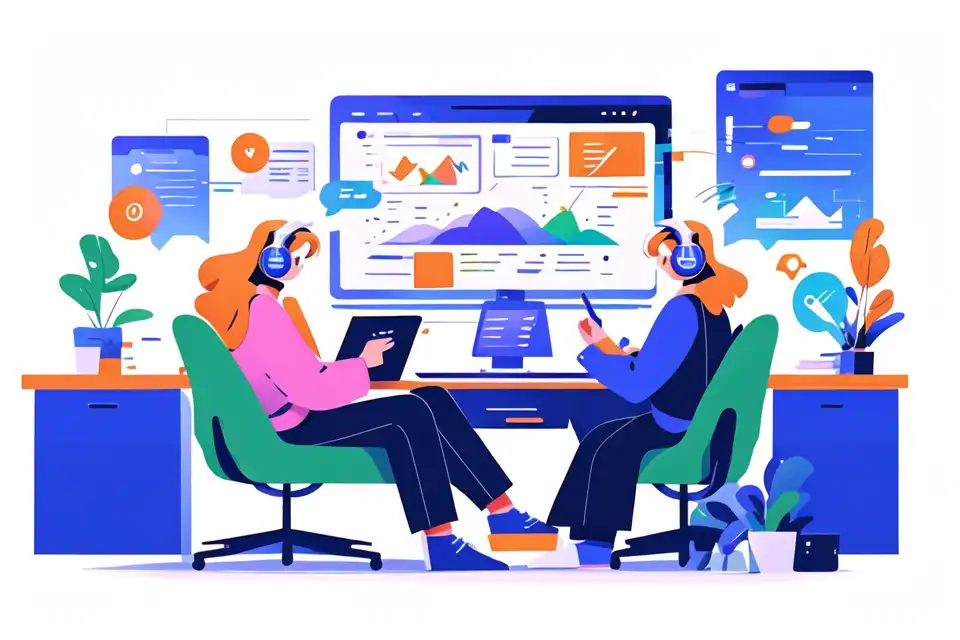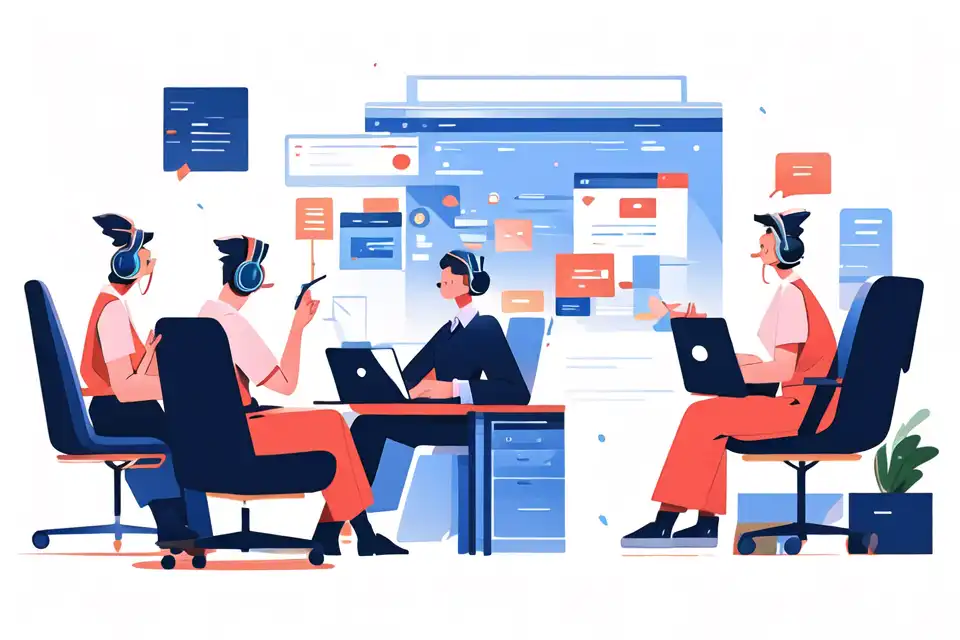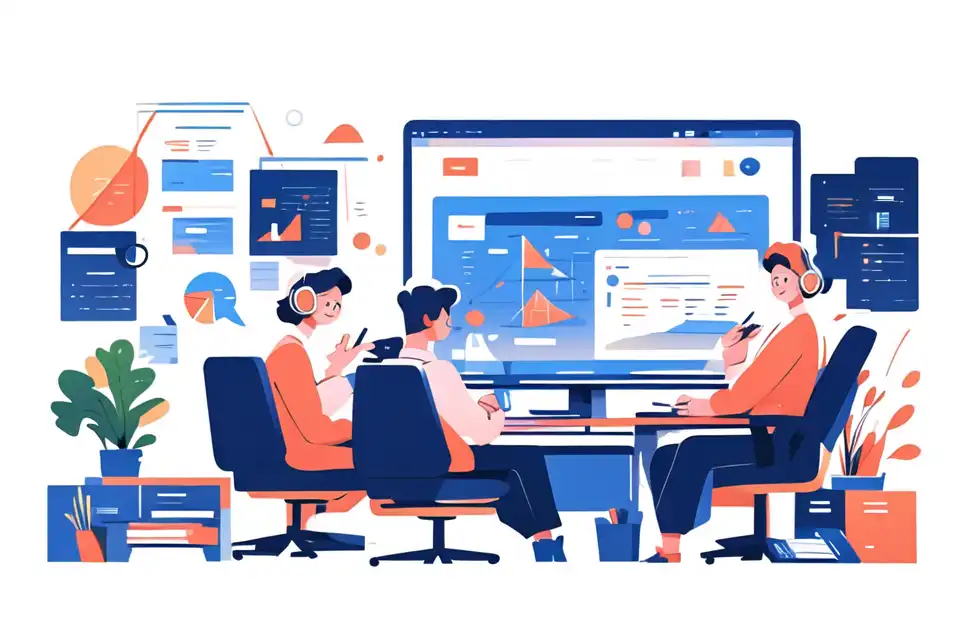Educational CRM Software
Learn about the top tips and strategies in educational CRM software
Try Lark for Free
Understanding the Role of Educational CRM Software
Educational CRM software is a technology tool that helps educational institutions manage their communication with students, keep track of their progress, and improve their learning experience. It is a centralized platform that incorporates a wide range of functionalities, including student data management, administration, admissions, alumni tracking, course scheduling, and more.
The Rising Importance of CRM in Modern Learning Environments
In the era of digital learning, the need for educational CRM software is more critical than ever. With the proliferation of online learning platforms and digital classrooms, educational institutions need a tool to manage and streamline their interactions with students. Educational CRM software provides this tool, enabling institutions to enhance their teaching methods, boost student engagement, and drive better educational outcomes.
Trends and Statistics: The Growing Influence of Educational CRM Software
The adoption of educational CRM software is on an upward trajectory. According to a report by Grand View Research, the global educational CRM market size is expected to reach USD 7.76 billion by 2025. This growth is driven by the increasing demand for streamlined communication between students and institutions, growing emphasis on student satisfaction, and rising need for data-driven decision making in education.
Unlock the power of Lark to elevate your business operations. Discover actionable strategies and best practices in our comprehensive guide.
The benefits of integrating educational crm software
Elevating Teaching and Learning Experiences
Educational CRM software can greatly enhance teaching methods and learning experiences. For instance, it can help teachers track student progress, manage assignments, and provide personalized feedback. For students, it can provide a centralized platform for accessing course materials, receiving notifications, and communicating with teachers and peers.
Boosting Student Engagement and Outcomes
By providing a streamlined communication platform, educational CRM software can significantly boost student engagement. It allows students to interact with teachers and peers in real-time, participate in online discussions, and receive immediate feedback. This increased engagement can lead to improved educational outcomes, such as higher grades and better retention rates.
Related:
Education Solution | LarkLearn more about Lark can help you with everything mentioned so far in the article.
Real-world examples of crm success in education
Transforming communication at xyz university
Transforming communication at xyz university
At XYZ University, implementing educational CRM software transformed their communication with students. The software provided a centralized platform for managing student data, sending notifications, and tracking student progress. As a result, the university reported improved student satisfaction, higher retention rates, and increased efficiency in administration.
Enhancing student engagement at abc college
Enhancing student engagement at abc college
At ABC College, educational CRM software played a crucial role in enhancing student engagement. The software provided an interactive platform for students to participate in online discussions, collaborate on projects, and receive personalized feedback. As a result, the college reported higher student engagement, improved grades, and better learning outcomes.
Streamlining administration at def school
Streamlining administration at def school
At DEF School, educational CRM software helped streamline their administration. The software automated various administrative tasks, such as student registration, course scheduling, and grade reporting. As a result, the school reported increased efficiency, reduced administrative costs, and improved staff productivity.
Learn more about Lark can help you with everything mentioned so far in the article.
Challenges in adopting crm software and solutions
While educational CRM software offers numerous benefits, adopting it can present several challenges. These can include data migration issues, staff training needs, integration with existing systems, and budget constraints. However, with careful planning and execution, these challenges can be successfully overcome.
Future of crm software in education: emerging trends and predictions
The future of educational CRM software looks promising, with several emerging trends and predictions. These include increasing adoption of cloud-based CRM solutions, growing use of AI and machine learning in CRM, and rising demand for mobile CRM. These trends indicate that educational CRM software will continue to play a crucial role in transforming education.
Learn more about Lark can help you with everything mentioned so far in the article.
Do's and dont's of implementing educational crm software
| Do's | Don'ts |
|---|---|
| Do identify your needs and objectives before selecting a CRM software | Don't rush the selection process |
| Do invest in staff training and support | Don't neglect staff training needs |
| Do monitor and adjust the software regularly | Don't set it and forget it |
Learn more about Lark can help you with everything mentioned so far in the article.
Conclusion: embracing the power of educational crm software
In conclusion, educational CRM software is a powerful tool that can transform education by enhancing teaching methods, boosting student engagement, and streamlining administration. By embracing this technology, educational institutions can prepare themselves for the future of digital learning.
Unlock the power of Lark to elevate your business operations. Discover actionable strategies and best practices in our comprehensive guide.








